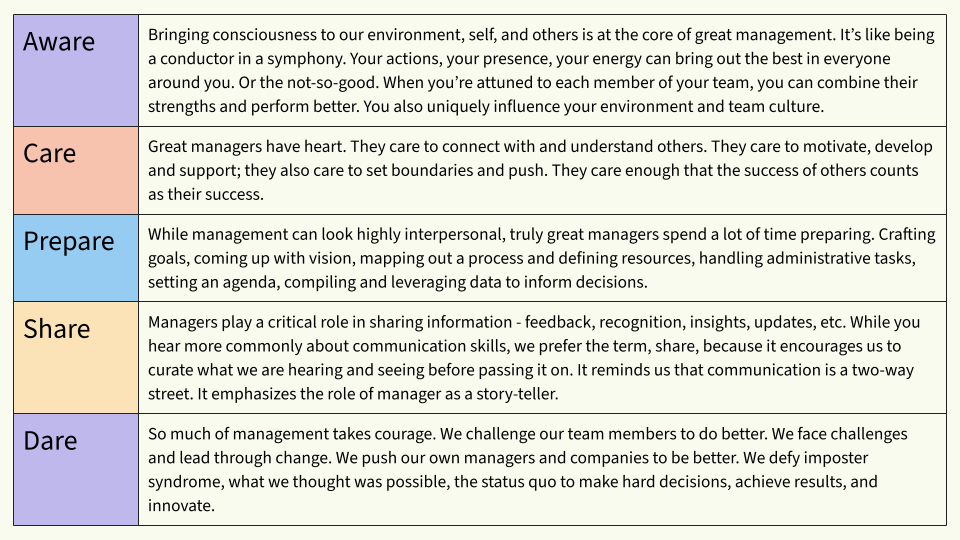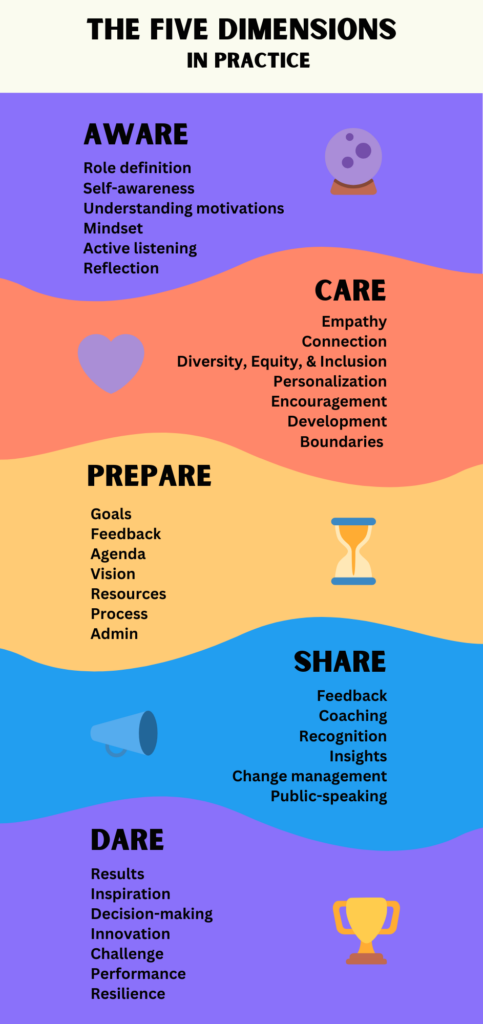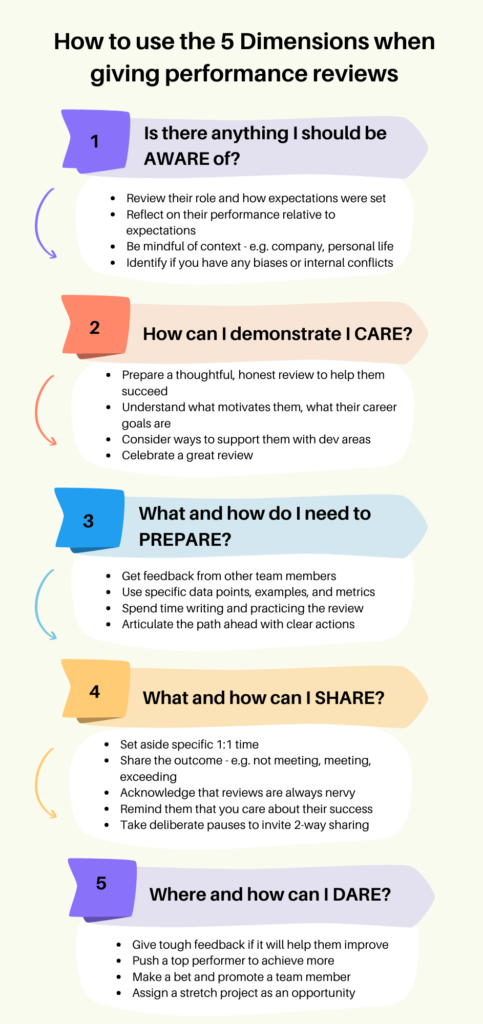We developed a manager framework so you can understand what great looks like as a people manager. It’s something that you can put into practice on Day 1 and build on as you advance in your career.
Manager Impact
We think you have one of the most impactful (and hardest) jobs on earth.
Here’s why:
- You’re on an incredibly meaningful career path with countless opportunities ahead
- You get to empower team members to perform at their best
- Your investments help teammates advance in their careers and achieve life goals
- You have a big impact on company performance and culture
- You grow and work through challenges
Manager Outcomes
Generally, as people managers we’re after similar great outcomes:
For my team
- Empower a happy, high-performing team
- Foster an engaged culture
- Create a diverse, equitable, and inclusive environment
For myself
- Meet or beat expectations in my role
- Develop skills and gain experience
- Advance in my career
So, how do you get there?
What does great management look like?
There’s no one answer to the question: “What does great management look like?”.
That’s because each manager is working in a unique environment with a unique team. They bring a unique combination of strengths and experiences to the table.
However, we’ve developed 1000s of managers over the years and have seen which skills and attributes lead to great outcomes.
We organize these into 5 dimensions of management:

Each of these dimensions represents a cluster of thinking, attitudes, capabilities, and behaviors that we see successful managers practice. To begin, managers may be better at 1-2 of the dimensions. Great managers work at flexing across the dimensions.
The 5 Dimensions of Great Management

Here are some examples of the 5 dimensions in practice:

After a brief look at the infographic above, it’s clear that managers are expected to perform in diverse ways. It’s what makes the job so energizing and rewarding; it’s also what can make the job exhausting and overwhelming.
Using the 5 dimensions
The purpose of the framework is to help us label and talk about the dynamic experience of becoming and growing as a manager. We also wanted to give you something practical vs purely theoretical. When in doubt, you can use the 5 dimensions as a checklist to determine what to do.
Imagine you are getting ready to give an annual performance review. You can put the 5 dimensions to use:

This is far from the only way to think about management. (See our favorite books written on the topic here and here). Many others have written lists and perspectives on the topic.
We see this framework as a practical foundation upon which managers can develop their own unique management style. You should incorporate other methodologies and create your own. We also encourage you to share and learn from your peers.

Self-Assessment: 5 Dimensions of Great Management
Perhaps one of the best tools you can use with this framework is the Indicators Chart. This chart organizes behaviors associated with each dimension across three “goldilocks” categories: Not enough, Just right, and Too much. Using this chart, you’ll be able to better understand how you show up on both good and bad days as a manager.

